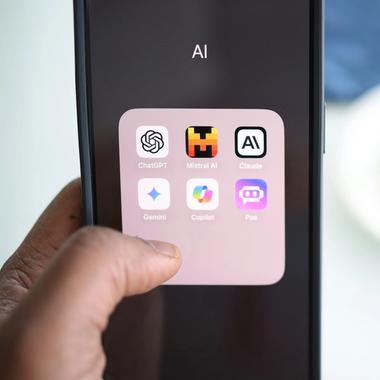Security is a critical factor when integrating AI into an app. AI systems rely on large datasets, often containing sensitive user information, making data protection essential. Ensuring secure data storage, encryption, and compliance with regulations like GDPR or CCPA helps safeguard user privacy.
Another major concern is bias in AI algorithms. Since AI models learn from existing data, they can unintentionally adopt and perpetuate biases. Regular audits and testing are necessary to maintain fairness and prevent unintended discrimination.
Cybersecurity threats are also a risk, as AI-driven applications can be vulnerable to hacking attempts. Developers must continuously monitor AI models for vulnerabilities and implement strong security measures to protect against potential exploits.
Most public AI services train their models on continued usage, using the data they are provided to further improve their responses. Running your own AI service can ensure your data stays 1st party, but can come with increased complexities and costs.





